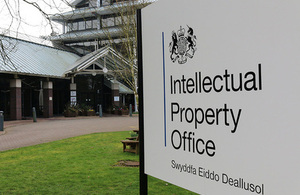The Intellectual Property Office (IPO), the UK government body responsible for intellectual property rights, has found itself at the center of a controversy surrounding its diversity and inclusion initiatives. Critics, including the TaxPayers’ Alliance, have condemned the IPO for allowing its staff to celebrate holidays like Juneteenth and the International Day of Indigenous Peoples, arguing that these observances are irrelevant to the IPO’s core mission and indicative of a bloated workforce with too much idle time. The critics contend that taxpayer-funded civil servants should focus solely on their official duties rather than engaging in activities perceived as extraneous to their roles. This raises questions about the appropriate scope of diversity and inclusion initiatives within government agencies and the balance between promoting cultural awareness and maintaining a laser focus on core responsibilities.
The IPO, however, defends its practices. It emphasizes that its diversity and inclusion programs aim to create a more inclusive and representative workplace, valuing the diverse backgrounds and experiences of its employees. The organization argues that these initiatives foster a more welcoming and understanding environment, ultimately benefiting the IPO’s overall effectiveness. Furthermore, the IPO points out that it is funded through fees for its services, not directly by taxpayers, suggesting that its spending decisions on such programs do not directly burden the public purse. This raises the question of whether the source of funding should influence the scrutiny applied to an organization’s internal activities.
At the heart of the debate lies the question of what constitutes appropriate behavior for civil servants. Critics argue that civil servants should maintain a strict focus on their official duties and avoid engaging in activities perceived as political or culturally divisive. They contend that celebrating holidays like Juneteenth, a commemoration of the end of slavery in the United States, is inappropriate for a UK government body and potentially alienates segments of the population. This perspective reflects a narrower view of the role of government agencies, emphasizing efficiency and avoiding any actions that could be perceived as controversial.
Conversely, the IPO and its supporters argue that promoting diversity and inclusion is essential for creating a modern and representative workplace. They maintain that celebrating cultural holidays and engaging with diverse perspectives enriches the organization and makes it more responsive to the needs of a diverse society. This perspective reflects a broader view of the role of government agencies, encompassing not only the efficient execution of their core duties but also the promotion of broader societal values. This raises the fundamental question of whether government agencies should be active participants in shaping societal values or remain strictly neutral.
The controversy surrounding the IPO’s diversity and inclusion initiatives highlights a broader tension within society regarding the role of government and the appropriate scope of its activities. On one side, there is a demand for government agencies to remain focused on their core responsibilities, minimizing expenditures and avoiding any actions perceived as extraneous or politically charged. On the other side, there is a growing expectation for government agencies to reflect the diversity of the society they serve and to actively promote inclusivity and cultural understanding. This tension necessitates a careful balancing act, ensuring that government agencies remain efficient and effective while also fostering a workplace that values diversity and inclusivity.
The debate over the IPO’s activities underscores the complexities of navigating diversity and inclusion in the modern workplace. It raises questions about the appropriate boundaries for such initiatives, the balance between promoting inclusivity and maintaining focus on core responsibilities, and the role of government agencies in shaping societal values. The controversy surrounding the IPO serves as a microcosm of broader societal discussions about diversity, inclusion, and the evolving role of government in an increasingly complex world. It highlights the need for ongoing dialogue and thoughtful consideration of these issues to ensure that government agencies effectively serve the needs of all members of society.











